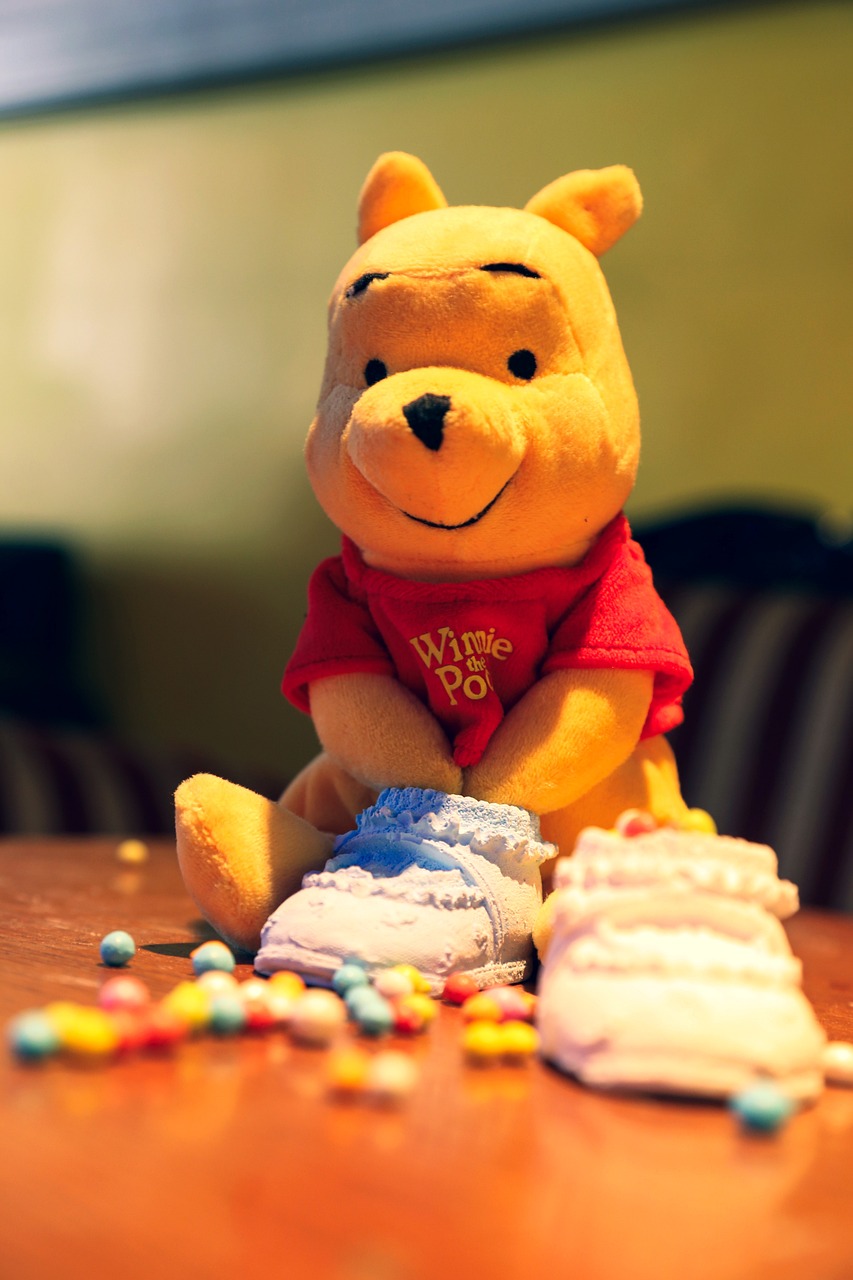Picture Books That Triggered Moral Panic

You’d think picture books about penguins and families would be harmless, right? Not in today’s America. The 2023-2024 school year saw over 10,000 book bans affecting more than 4,000 unique titles, with innocent children’s stories becoming battleground material. The most banned picture book was “And Tango Makes Three,” a heartwarming story about two male penguins adopting a baby penguin at the Central Park Zoo. Imagine explaining to a kindergartner why they can’t read about penguin families anymore! Even Maurice Sendak’s “In the Night Kitchen,” a Caldecott Honor book featuring Mickey’s adventures with night bakers, faced bans because a Moms for Liberty leader called nude drawings of Mickey “harmful to minors”. These bans make you wonder if some people have forgotten what childhood innocence actually looks like. The irony? Many of these books teach empathy, family values, and acceptance – exactly what kids need more of these days.
When Chewing Gum Became Public Enemy Number One

Singapore banned the sale of chewing gum in 1992, creating what might be the world’s most peculiar contraband market. The ban aimed to stop people from placing used gum in inappropriate and costly places, such as sensors of subway doors, inside lock cylinders, and on elevator buttons. You can still get fined just for possessing gum unless it’s for medical purposes. Picture tourists frantically searching their pockets at customs, terrified they might have a forgotten piece of Trident that could land them in legal hot water. Exceptions are made for therapeutic purposes, but in general, selling, buying, and using chewing gum is illegal. Singapore basically turned gum into the equivalent of a controlled substance, proving that sometimes the cure for messy public spaces is more extreme than anyone expected.
Winnie the Pooh: From Honey Bear to Political Threat

Beginning in July 2017, China began censoring imagery of Winnie-the-Pooh because Chinese Internet users compared General Secretary Xi Jinping to the character in memes, which the Chinese Communist Party perceived as disrespectful mockery. The connection can be traced back to 2013, when people on social media compared a photo of Xi and former President Barack Obama walking side by side to an image of Pooh and Tigger. That prompted Beijing to censor the Chinese name for Winnie the Pooh and animated gifs of the chubby, somewhat dopey bear on social media platforms in 2017. The 2018 film Christopher Robin was banned in China due to said comparisons. It’s almost comical – a children’s character about friendship and honey became such a threat to state security that an entire nation’s internet had to be scrubbed clean of bear-related content. As one expert noted, “Winnie the Pooh has become a symbol for dissidents in China, so now the character alludes to Xi Jinping himself and the president doesn’t like this”.
China’s War on Time Travel

In 2011, China’s media authorities stopped the clock on time travel in film and television, saying the sci-fi notion “disrespects history”. Film critic Raymond Zhou Liming explained that “whatever isn’t possible in the real world belongs to superstition,” and in electronic mass media, the idea of time travel presents a clear and present danger. Apparently unhappy with film and TV presenting even the fictional notion that China’s ability to provide happiness is a thing of the past, officials posted guidance stating “Producers and writers are treating serious history in a frivolous way, which should by no means be encouraged anymore”. Think about that for a moment – a government so insecure about its present that it banned fictional escapes to the past! As one netizen angrily responded, “China will ban dreaming during sleeping next!” The truth is, the Chinese government wasn’t banning time travel to protect history – it was banning it because letting anyone besides the government tell any story threatens the Communists’ death grip on Chinese culture.
Blue Jeans: The Denim That Broke Democracy

In North Korea, no one is allowed to wear blue jeans because they are completely banned in the country. North Korea’s objection seems to date back to the movie “Rebel Without a Cause,” where James Dean epitomized the rebellious teenager resisting the existing order, and the regime probably took action against jeans when the movie became popular among elite children some years later. North Korean state television even censored a pair of blue jeans when airing a British gardening show, reflecting the regime’s efforts to restrict popular Western fashion and culture. According to reports, jeans are banned because “we wear them on the regular, and for that reason they’re out in North Korea”. There, wearing jeans is illegal because the regime sees them as the embodiment of impure ideology. It’s mind-boggling that a piece of clothing associated with American cowboys and casual comfort could be seen as such a threat to an entire political system.
Kinder Eggs: The Chocolate Contraband

A 1938 U.S. law, the Federal Food, Drug, and Cosmetic Act, prohibits confectionery products that contain a “non-nutritive object,” essentially banning “the sale of any candy that has embedded in it a toy or trinket”. In January 2011, U.S. Customs threatened a Manitoba resident with a $300 fine for carrying one egg across the border, and in 2012, border guards quoted a potential fine of “$2,500 per egg” to two Seattle men. “Kinder eggs are prohibited just like narcotics are prohibited,” said U.S. Customs spokesperson Mike Milne. These little treats full of joy are banned in the United States because of a law passed in 1938 prohibiting confectionary items containing “non-nutritive objects,” and the Kinder Surprise’s plastic capsule is considered just that. Attempting to smuggle them into the US could lead to a fine of up to $2,500 per egg – that’s one expensive chocolate surprise! Meanwhile, kids around the world enjoy the simple pleasure of chocolate and tiny toys, while American children get the watered-down “Kinder Joy” version that separates the fun into two boring compartments.
Pokemon: The “Satanic” Trading Cards

The Russian government attempted to ban or censor Pokemon cards in late 2001-2002, though the Ministry of Education included Pokemon in a list of banned toys because of supposedly harmful effects on children’s minds, and experts decreed that Pokemon cards must be altered, removing orders bidding children to poison or kill other Pokemon characters. In 2001, an anonymous user in Saudi Arabia posted fabricated claims that Pokemon meant “I am a Jew,” Pikachu meant “Be a Jew,” and other characters had anti-Islamic meanings. Pokemon was banned in Saudi Arabia in 2001 because of association with gambling, and has been accused of being Satanic or racist because of certain designs. In Russia, an ultraconservative Cossack group announced plans to ban Pokemon Go, with their leader saying “We need to take people out of the virtual world, and this generally smacks of Satan”. A Russian blogger even received a suspended sentence of 3½ years for playing Pokemon Go in a cathedral, with a judge saying he had insulted Christians and Muslims by “attributing to Jesus Christ the qualities of a reanimated zombie”. Apparently, cartoon creatures collecting battles were seen as more dangerous than actual social problems!
High Heels at Historical Sites

In Greece, wearing high heels at ancient sites like the Acropolis is prohibited to prevent damage to historical monuments, though the intent seems justified. This ban actually makes perfect sense when you think about it – stilettos and ancient marble don’t mix well. Imagine trying to navigate thousand-year-old stone steps in six-inch heels while tourists push past you for the perfect Instagram shot. The Greek authorities probably got tired of repairing tiny holes in priceless archaeological sites caused by fashionable footwear. Visitors are advised to pack some sandals if they plan to tour historical sites. It’s one of those rare bans that protects both human ankles and human heritage at the same time. Still, picture the disappointment of fashion-conscious tourists who planned their entire vacation outfit around those designer pumps, only to be turned away at the gates of history!
The Polish War on Winnie’s Wardrobe

A town in Poland banned Winnie the Pooh from a children’s playground due to concerns over his lack of pants and his “inappropriate” gender ambiguity – poor Pooh Bear couldn’t catch a break. In Poland, Winnie the Pooh is banned from playgrounds and schools because he doesn’t wear pants, and the issue was discussed during a local council meeting with audio subsequently leaked to newspapers. Think about the absurdity of grown adults sitting in a government meeting, seriously debating whether a fictional bear’s fashion choices pose a threat to children. Winnie the Pooh was called an ‘inappropriate hermaphrodite’ because he lacked distinguished genitalia. This has to be one of the most bizarre examples of adults overthinking children’s entertainment. The fact that a bear who teaches lessons about friendship, sharing honey, and getting stuck in rabbit holes could be seen as morally corrupting shows just how far some people will go to find problems where none exist.

